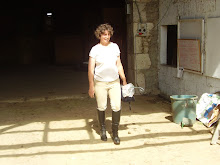This was posted on the moretprs forum some time ago, and I saved it because I found it was an excellent description of what a language class should be.
Some important principles for an acquisition-
1) Language acquisition is a skill. It is something that the brain does naturally and subconsciously given the right conditions. The subconscious part is key because you are developing fluency without even being aware of it. All the student has to do is listen or read and understand. The brain will automatically acquire the language.
2) In learning a language, like learning a sport, developing instincts is crucial. For example, when learning to ski, is it more effective to study theory and understand how it works, or just get a feel for it? One of my best ski instructors gave us life savers and had us focus on pinning them to the roofs of our mouths as we skied down the mountain. This allowed us to "quiet" our conscious minds and let our instincts take over. Sometimes in sports, the more you think, the slower you react. Language acquisition works in quite the same way. Ideally, students will be so riveted by the conversation that they forget that they are learning a language.
3) When speaking, it is really hard to focus on the message and the structure at the same time. That is why consciously-
4) During class, the strategy is to give students as much repetitive, interesting, and grammatically-
Jeff Klamka
